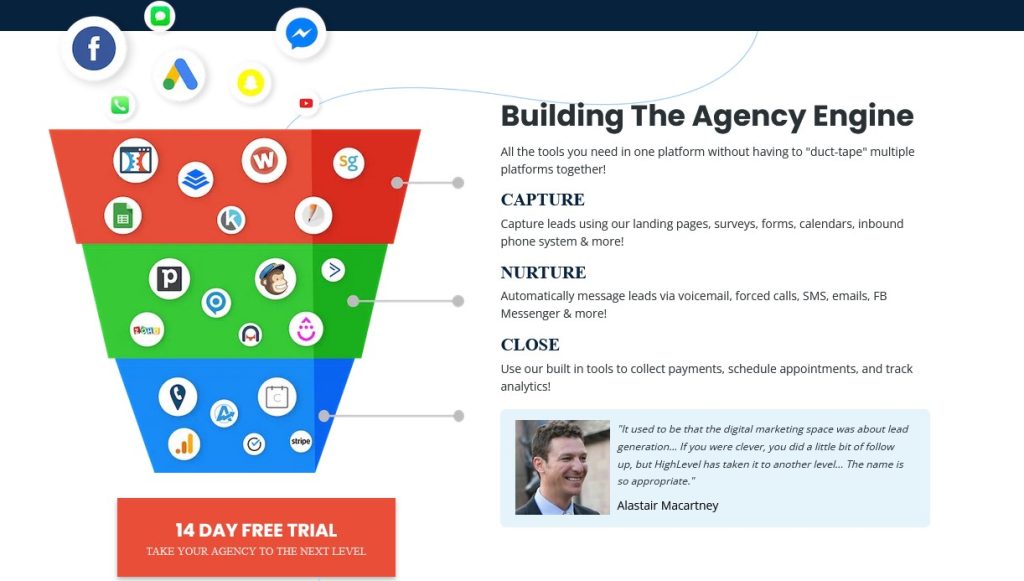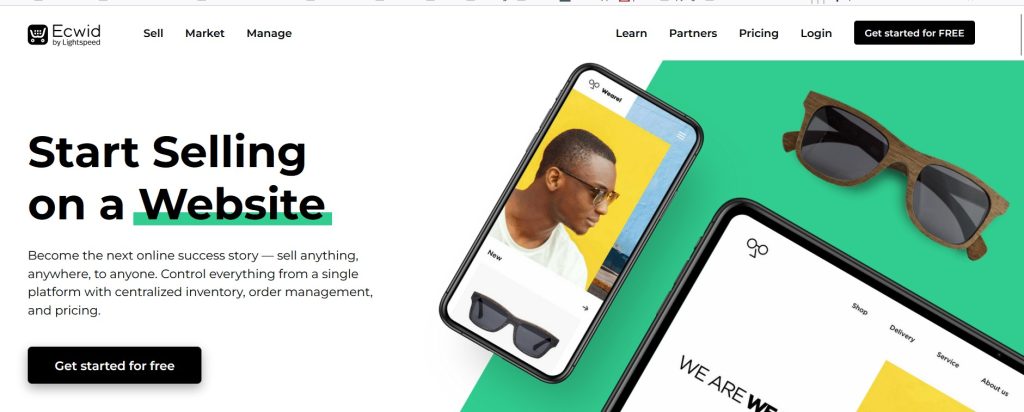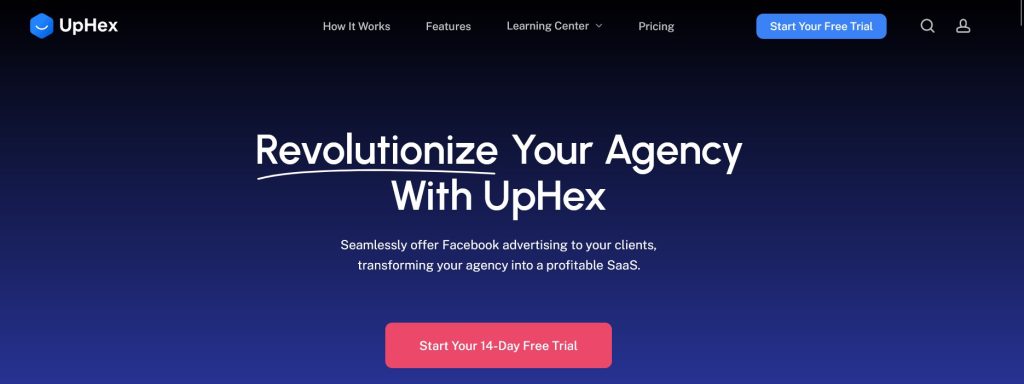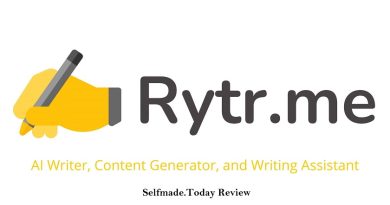From Start to Scale: Choosing the Perfect White Label SaaS Platform for Your Business
Last Updated on July 23, 2023
Are you an aspiring entrepreneur looking to launch your own software-as-a-service (SaaS) business? Or perhaps you already have a small SaaS startup and are ready to take it to the next level. In either case, one crucial decision you’ll need to make is choosing the perfect white label SaaS platform for your business. With so many options available in the market, selecting the right platform can be a daunting task.
But fear not! In this guide, we will walk you through the process of finding the ideal white label SaaS platform that aligns with your business goals and objectives. From evaluating features and functionalities to considering pricing models and scalability, we will cover all the essential factors you need to consider. So, whether you are just starting out or looking to scale your SaaS business, read on to discover the key steps to choosing the perfect white label SaaS platform that will set you on the path to success.
Understanding the Benefits of White Label SaaS Platforms
White label SaaS platforms offer a range of benefits for entrepreneurs and businesses looking to enter the competitive world of SaaS. One of the main advantages is the ability to brand the platform as your own, creating a seamless experience for your customers. This means you can customize the platform with your own logo, colors, and branding elements, giving your business a professional and polished look. Additionally, white label SaaS platforms often come with a suite of pre-built features and functionalities, allowing you to focus on growing your business instead of spending time and resources on developing complex software from scratch.
Another benefit of white label SaaS platforms is the flexibility they offer. These platforms typically provide a range of customizable options, allowing you to tailor the platform to suit your specific business needs. Whether you’re in the e-commerce, healthcare, or finance industry, you can find a white label SaaS platform that caters to your unique requirements. Furthermore, white label SaaS platforms often come with built-in integrations, making it easy to connect with other popular tools and services, such as payment gateways, CRM systems, and marketing automation software.
In addition to branding and flexibility, white label SaaS platforms also offer cost savings for businesses. By opting for a white label solution, you eliminate the need for expensive development and maintenance costs associated with building your own software. Instead, you can leverage an existing platform that has already been tested and proven to work effectively. This allows you to allocate your resources towards other areas of your business, such as marketing, customer acquisition, and product development.
Evaluating Your Business Needs
Before diving into the sea of white label SaaS platforms, it’s important to evaluate your business needs and determine what you’re looking to achieve with your SaaS business. Start by identifying your target market and understanding their pain points and challenges. This will help you narrow down your options and choose a white label SaaS platform that addresses those specific needs. Additionally, consider your long-term goals and scalability requirements. Do you plan to expand your product offerings or target new industries in the future? If so, you’ll want to choose a platform that can accommodate your growth and scale with your business.
Another important factor to consider is the level of technical expertise and resources available within your team. While white label SaaS platforms are designed to be user-friendly, some may require more technical knowledge than others. If you have a small team or limited technical expertise, it’s important to choose a platform that offers comprehensive support and training resources to ensure a smooth implementation and onboarding process.
Finally, consider your budget and pricing constraints. White label SaaS platforms come in a range of pricing models, from monthly subscriptions to revenue sharing agreements. It’s crucial to choose a platform that fits within your budget while still providing the necessary features and functionalities to meet your business needs. Keep in mind that the cheapest option may not always be the best choice, as it may lack essential features or have limited scalability options.
Researching Available White Label SaaS Platforms
Now that you have a clear understanding of your business needs, it’s time to start researching the available white label SaaS platforms in the market. Begin by conducting a comprehensive search online and exploring different platforms’ websites and product descriptions. Look for platforms that align with your industry and have a track record of success. Pay close attention to customer reviews and testimonials to get an idea of the platform’s strengths and weaknesses. Additionally, reach out to your industry peers and network to gather recommendations and insights from those who have already navigated the white label SaaS landscape.
As you research, make a list of potential platforms that stand out to you. Consider factors such as the platform’s reputation, user interface, available features, and customer support. Narrow down your list to a handful of platforms that seem like the best fit for your business, and then proceed to the next step: evaluating key features. Let’s review some interesting white label platforms.
White label Saas For Marketing Agencies-GohighLevel

As a marketing professional, I have had the opportunity to use various software tools for client management, automation, and sales processes. GoHighLevel’s White Label SaaS has certainly stood out as an exceptional solution. If you use Gohighlevel Saas mode you can present a lot of advanced marketing features for agencies and small business under your own brand and of course sell it as your own. Features like:
- Unified Inbox
- Auto Missed Call text back.
- White label reputation management software
- CRM.
- Fully Automated Booking.
- Automated support chat bot widget.
- Social posts planner.
- Drag and drop website builder
- Social link pages
While GoHighLevel’s White Label SaaS features are undoubtedly impressive, it’s essential to acknowledge that the platform might not be suitable for every business. Pricing could be a consideration for some smaller agencies, as it might be relatively higher than other options in the market. However, the value delivered by the platform often justifies the cost for agencies that make full use of its extensive feature set. If you’re looking to start a white label saas business as a marketing professional this might be your best option to date.
Ecwid -White label Saas for e-commerce

Ecwid is a leading white label e-commerce software that enables businesses to create and manage their online stores with ease. As a white label solution, Ecwid allows companies to rebrand the platform with their own logos, colors, and domain names, seamlessly integrating it into their existing websites or applications. One of Ecwid’s top features as a white label software is its seamless integration capability, allowing businesses to offer a fully functional online store experience to their customers without the need for extensive technical knowledge.
Moreover, Ecwid’s mobile-friendly design ensures that the online stores look and function flawlessly on various devices, providing a smooth shopping experience for mobile customers. The extensive app market empowers businesses to tailor their stores with various plugins and extensions, enhancing functionality and customizing the platform to meet their unique requirements. With secure and reliable features, multi-language and currency support, and excellent customer service, Ecwid stands out as a versatile and powerful white label e-commerce solution for businesses looking to establish a strong online presence and maximize their revenue potential.
Uphex -White label For Facebook Ads Management

UpHex is a white-label Facebook ads platform that allows agencies to create and manage Facebook ads for their clients. It is a plugin that integrates with GoHighLevel.
UpHex has a number of features that make it a valuable tool for agencies, including:
- A user-friendly interface that makes it easy to create and manage Facebook ads
- Pre-built templates that can be customized to fit the needs of different clients
- Advanced analytics that track the performance of Facebook ads
- A client self-service portal that allows clients to view and manage their own Facebook ads
So basically you can whitelable a facebook ads management service for your clients. Which is a quite unique white label software at this time.
Key Features to Consider When Choosing a White Label SaaS Platform
When evaluating white label SaaS platforms, there are several key features you should consider to ensure the platform meets your business needs. These features will vary depending on your industry and specific requirements, but here are some essential ones to keep in mind:
1. **Customization Options**: Look for a platform that offers extensive customization options, allowing you to brand the platform as your own and tailor it to match your business’s unique look and feel. This includes the ability to add your own logo, colors, and branding elements.
2. **Scalability**: Choose a platform that can scale with your business as it grows. Look for features such as unlimited user accounts, storage, and bandwidth to accommodate your future needs.
3. **Integration Capabilities**: Consider the integrations that are important to your business. Look for a platform that offers seamless integration with popular tools and services, such as CRM systems, payment gateways, and marketing automation software.
4. **Reporting and Analytics**: Ensure the platform provides robust reporting and analytics capabilities. This will allow you to track important metrics and gain insights into your business’s performance, user behavior, and customer engagement.
5. **Security**: Security is paramount when it comes to handling sensitive customer data. Look for a platform that offers robust security measures, such as SSL encryption, data backups, and regular security audits.
6. **Customer Support**: Evaluate the level of customer support offered by the platform. Look for platforms that provide 24/7 technical support, comprehensive documentation, and training resources to ensure a smooth implementation and onboarding process.
By carefully evaluating these key features, you can narrow down your list of potential platforms and choose the one that best aligns with your business needs and goals.
Analyzing Pricing and Scalability Options
As an entrepreneur or business owner, budget and scalability are two crucial factors to consider when choosing a white label SaaS platform. Start by analyzing the pricing models offered by the platforms on your shortlist. Some platforms charge a monthly subscription fee, while others operate on a revenue sharing model. Consider your budget and projected revenue to determine which pricing model makes the most sense for your business. Keep in mind that while a lower monthly fee may seem attractive, revenue sharing models can be beneficial if you’re just starting out and don’t have a large customer base yet.
In addition to pricing, assess the scalability options provided by each platform. Consider factors such as the ability to add new features, accommodate increased user traffic, and handle larger data volumes. You want to choose a platform that can grow with your business and support your long-term goals. Look for platforms that offer flexible pricing plans and scalability options, allowing you to upgrade or downgrade as needed without disrupting your operations.
Assessing Customer Support and Training Resources
Implementing a white label SaaS platform can be a complex process, especially if you have limited technical expertise within your team. That’s why it’s crucial to assess the level of customer support and training resources offered by each platform. Look for platforms that provide comprehensive documentation, video tutorials, and online forums where you can find answers to common questions. Additionally, evaluate the responsiveness and availability of the platform’s support team. Choose a platform that offers 24/7 technical support to ensure that any issues or concerns can be addressed promptly.
Furthermore, consider the availability of training resources and onboarding assistance. Some platforms offer personalized training sessions or dedicated account managers to guide you through the implementation process. This can be especially beneficial if you’re new to the world of SaaS or if you have a small team with limited resources. By choosing a platform with robust customer support and training resources, you can ensure a smooth transition and maximize the platform’s potential.
Exploring Case Studies of Successful Businesses Using White Label SaaS Platforms
To gain a deeper understanding of how white label SaaS platforms can benefit your business, take the time to explore case studies of successful businesses that have leveraged these platforms. Look for case studies that align with your industry or business model. Pay attention to the challenges faced by these businesses and how the white label SaaS platform helped them overcome those challenges. This will give you valuable insights into the platform’s capabilities and how it can be applied to your own business.
Additionally, consider reaching out to businesses that are currently using the platforms you’re considering. Ask for their feedback and experiences with the platform, and inquire about any tips or best practices they can share. This firsthand information can provide valuable insights and help you make an informed decision.
Making the Final Decision and Implementing the Chosen Platform
After conducting thorough research, evaluating key features, analyzing pricing and scalability options, and assessing customer support, it’s time to make the final decision and implement the chosen white label SaaS platform. Before proceeding, ensure that you have a clear implementation plan in place. This should include a timeline, a list of tasks, and a dedicated team or individual responsible for overseeing the implementation process.
When implementing the chosen platform, it’s important to communicate with your team and stakeholders to ensure a smooth transition. Provide training sessions and resources to familiarize everyone with the platform’s features and functionalities. Encourage feedback and address any concerns or questions that arise during the implementation process. By involving your team and stakeholders from the beginning, you can ensure a successful implementation and maximize the platform’s potential.
Best Practices for Scaling Your Business with a White Label SaaS Platform
Once you have successfully implemented your chosen white label SaaS platform, it’s time to focus on scaling your business and maximizing its potential. Here are some best practices to keep in mind:
1. **Continuously Innovate**: The world of SaaS is constantly evolving, so it’s crucial to stay ahead of the curve. Continuously innovate your product offerings, add new features, and adapt to changing customer needs. Monitor industry trends and competitor offerings to ensure that your platform remains competitive and relevant.
2. **Leverage Marketing and Sales Strategies**: Develop effective marketing and sales strategies to promote your white label SaaS platform. Leverage digital marketing techniques, such as content marketing, social media advertising, and search engine optimization, to generate leads and attract new customers. Implement a robust customer acquisition and retention strategy to ensure sustainable growth.
3. **Listen to Customer Feedback**: Actively seek feedback from your customers and incorporate their suggestions and recommendations into your platform’s development roadmap. This will not only improve customer satisfaction but also help you identify new opportunities for growth and innovation.
4. **Build Strong Customer Relationships**: Cultivate strong relationships with your customers through personalized communication, exceptional customer support, and regular updates. Engage in conversations with your customers, listen to their needs, and provide solutions that exceed their expectations. This will foster customer loyalty and drive positive word-of-mouth referrals.
5. **Monitor and Analyze Key Metrics**: Continuously monitor and analyze key metrics to track the performance and success of your white label SaaS platform. This includes metrics such as customer acquisition cost, customer lifetime value, churn rate, and user engagement. Use these insights to make data-driven decisions and optimize your platform for maximum ROI.
By following these best practices, you can scale your business and unlock the full potential of your white label SaaS platform.
Bottom Line- How to Choose Your White Label SaaS Platform
Choosing the perfect white label SaaS platform for your business is a crucial decision that can greatly impact your success. By understanding the benefits of white label SaaS platforms, evaluating your business needs, researching available platforms, analyzing key features, assessing pricing and scalability options, and considering customer support and training resources, you can make an informed decision that aligns with your goals and objectives. Implementing the chosen platform and following best practices for scaling your business will set you on the path to success in the competitive world of SaaS. So, take the time to research, evaluate, and choose a white label SaaS platform that will propel your business forward and help you achieve your entrepreneurial dreams.
FAQ
White label Software-as-a-Service (SaaS) refers to a business model where a company develops a software application or platform and allows other businesses to rebrand and resell it as their own product. Essentially, the white label SaaS provider creates a generic software solution, which can then be customized and branded by other companies to make it appear as if they developed the software themselves.
Time and Cost-Effective: By using a white label SaaS product, companies can save time and resources on developing a software solution from scratch. They can quickly enter the market and focus on marketing and sales.
Focus on Core Business: Companies can concentrate on their core business and let the white label SaaS provider handle the software’s maintenance and updates.
Scalability: White label SaaS allows businesses to scale their offerings without the need for significant investment in additional development resources.
Branding and Control: Resellers have the freedom to brand the software as their own, giving them more control over how it is perceived in the market.
Quick Entry to Market: White label SaaS enables businesses to launch new products quickly, reducing the time-to-market for their offerings.
Gohighlevel is a CRM and marketing automation software that can be whitelabled. Ecwid does the same for ecommerce and uphex is a whitelabel solution for Facebook ads management.



